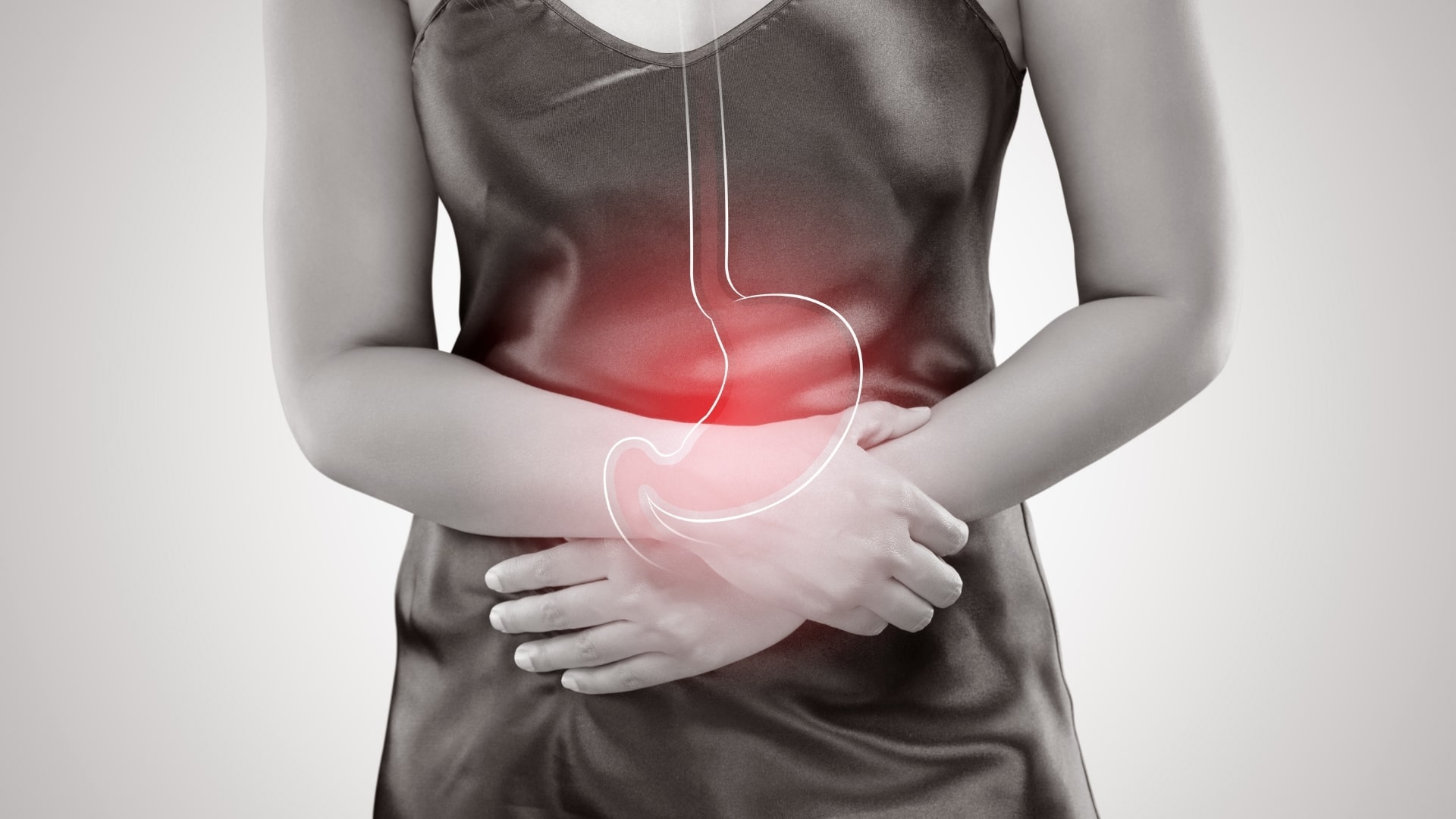What is Gastritis?
Gastritis is the inflammation of the stomach's protective lining, which can lead to discomfort and other health
issues. It is a term that covers various conditions with similar symptoms and causes. Gastritis can be acute,
appearing suddenly, or chronic, developing over time.
The most common cause of gastritis is infection with Helicobacter pylori, a bacterium linked to stomach ulcers.
Gastritis Causes
Gastritis occurs when the stomach’s protective lining is weakened, allowing digestive acids to cause irritation
and inflammation. Common gastritis causes include:
- Excessive alcohol consumption that damages the stomach lining
- Usage of tobacco products, which impairs stomach defenses
- Infection with Helicobacter pylori (H. pylori), a bacterium that infects the stomach lining and can
weaken the protective coating, resulting in the digestive juices reaching the stomach lining
- Long-term use of non-steroidal anti-inflammatory drugs (NSAIDs) such as aspirin and ibuprofen can erode the
stomach’s mucosal barrier
Gastritis Symptoms
Gastritis may not produce any signs or symptoms in most cases, especially mild ones. When present, gastritis symptoms
typically include:
- Black stool due to the blood in the bowel movements
- Vomiting blood or blood in vomit
- Burning feeling in the upper abdomen
- Loss of appetite
- Nausea and indigestion
- Pain in the upper abdomen
- Vomiting
Gastritis Diagnosis
To diagnose gastritis, your doctor will review your personal and family medical history, and perform an examination.
Your doctor may also recommend any of the following tests:
- Tests to detect Helicobacter pylori infection, such as breath, blood, or stool tests
- Endoscopy. An endoscopy involves inserting a long, thin, and flexible tube with a small camera at the end down
your throat and into your esophagus, stomach, and small intestine to determine any inflammation. A biopsy
(removal of a small tissue sample) may also be done, and the sample will be sent to the laboratory for analysis
to distinguish acute from chronic gastritis and rule out other conditions.
Gastritis Treatment
Treatment for gastritis depends on the cause and severity. Common treatments include:
- Antibiotics to treat H. pylori: Your doctor may prescribe antibiotics to kill the H. pylori
bacterium.
- Antacids to neutralize stomach acid: Your doctor may prescribe an antacid to neutralize stomach acid and
promote pain relief.
- Acid reducing medications: Your doctor may prescribe acid blockers that reduce the amount of acid released into
the digestive tract, providing pain relief and encourages healing of the stomach lining.
Gastritis Prevention
Preventing H. pylori infection, a leading cause of gastritis, involves maintaining good hygiene practices.
Since the bacterium can spread through contaminated food, water, or person-to-person contact, ensure:
- Proper handwashing before meals and after using the restroom
- Consuming fully cooked and hygienically prepared food
- Avoiding unclean water sources to reduce infection risk and protect your stomach lining
If left untreated, gastritis may worsen and lead to a stomach ulcer. In cases where gastritis doesn’t improve
or is causing severe symptoms, a general practitioner may refer you to a gastroenterologist. This
specialist might conduct a gastroscopy, a procedure
that allows doctors to look inside your stomach to assess the extent of the inflammation and identify any
complications.
How to Manage Gastritis Symptoms
If you have gastritis, here are some tips to help relieve symptoms:
- Reduce caffeine (tea, coffee, energy drinks).
- Sleep with your head elevated to prevent acid reflux.
- Lose weight if overweight.
- Talk to your doctor if you take painkillers like ibuprofen or aspirin regularly.
- Don't eat 3-4 hours before bed.
- Don't consume acidic, spicy, or fatty foods.
- Don't drink alcohol or smoke.
Get Expert Care for Gastritis at Gleneagles Hospital Penang
If you’re experiencing gastritis symptoms or have concerns about your digestive health, don’t wait. At
Gleneagles Hospital Penang, our experienced specialists provide comprehensive diagnosis and personalized treatment
plans to help you manage and overcome gastritis. Contact us today to schedule an
appointment with our specialists and get the expert care you deserve.


